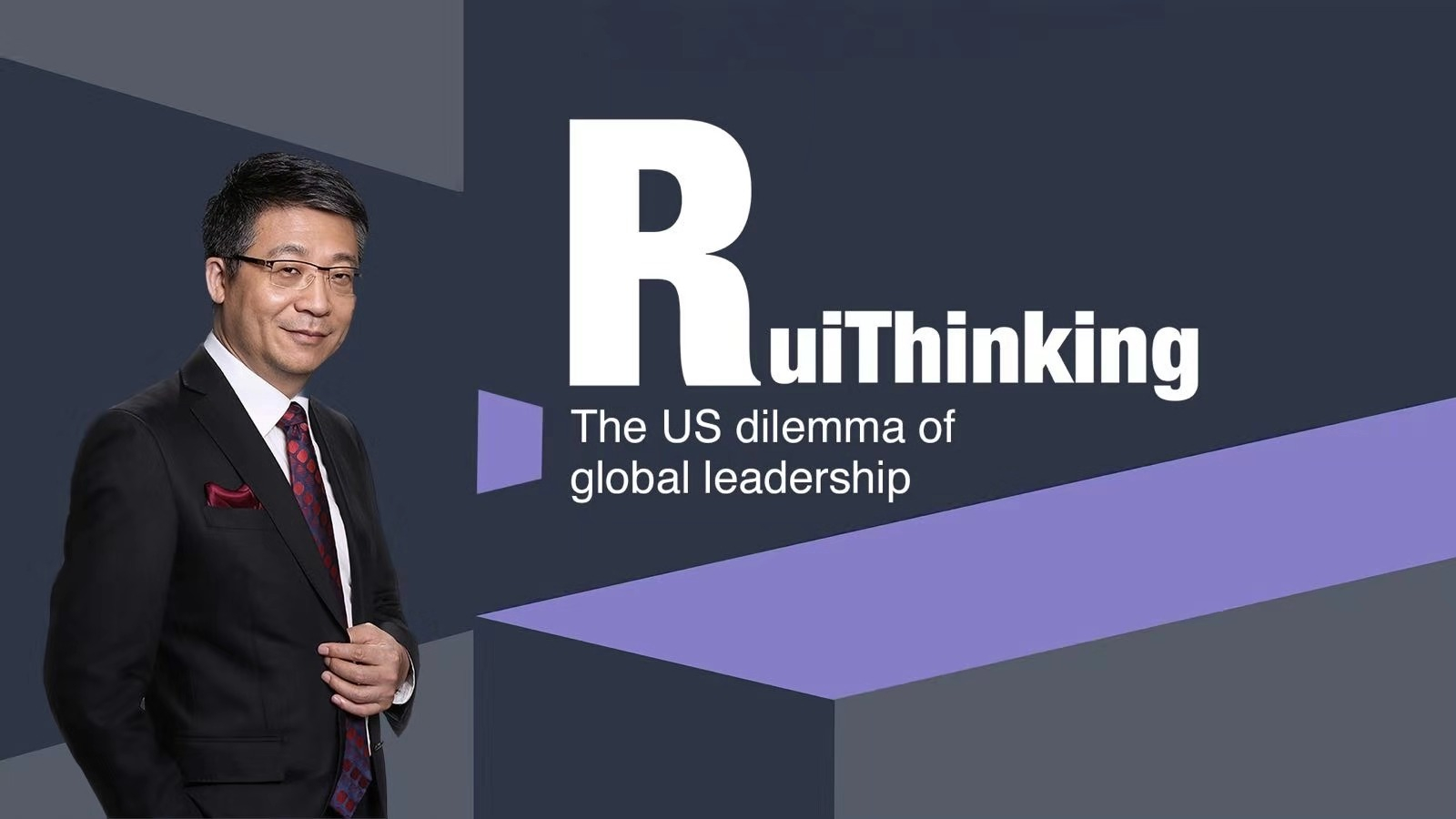
Opinions
18:40, 12-Oct-2018
Opinions: The US dilemma of global leadership
Updated
18:39, 15-Oct-2018
CGTN's Yang Rui
02:49

Hi there, welcome back to Ruithinking, I am Yang Rui.
An openly embarrassing issue is that ‘Putting America First' will be the bipartisan consensus sooner or later. Building post-war US leadership has been a process of leveraging global resources. What Trump does is deleveraging by pulling out of global commitments.
The founding principles of the Wilsonian vision face multiple challenges, such as external multilateralism, the rise and fall of emerging markets, and domestic populism.
The free flow of human capital and outsourcing of jobs won't sustain the old world order. A post-West process of globalization is gaining momentum.
China adopts an alternative route in achieving its massive industrialization and 5G ambition. This promises to build a new frontier comprehensively. But what scares the US is China's road map, which is allegedly not based on rules that have long favored beneficiaries of the old industrialization of two centuries ago.
In response, the Trump administration used the poisonous pills on non-market status to reject China's central planning.
Can the EU join Canada and Mexico to renew or even replace the old WTO rules that might favor conditions of under-developed nations? Will the US even pull out of the UN? One cannot dismiss the possibility.
Will the vision and route of Chinese development disrupt the old world order? I do not think so, our inclusive road map, instead, might help complement the game of the western hemisphere.
The issue is deep mistrust. The cabinet of Donald Trump believes restricting the assertiveness of China will help bring emerging markets into the orbit of the Washington consensus.
The EU and Japan have reasons to share US concerns, but they dislike the unilateral and hegemonic approach. Unless Donald Trump builds a coalition of the willing, the US-imposed rule of law will get nowhere.
Neither would the important Chinese share of the global value chain and its sizable market allow Trump and his successors to de-link the Chinese economy easily.
Professor Samuel Huntington might have wisely predicted a strategic marriage of expediency between Islamism and Confucianism, but he has failed to raise concerns about a Eurasian continental partnership between Moscow and Beijing.
Co-evolution should be the most convincing alternative to embarking upon a new cold war based on brinkmanship. China is not the old Soviet Union.
I will see you next time, good bye.
(If you want to contribute and have specific expertise, please contact us at opinions@cgtn.com.)

SITEMAP
Copyright © 2018 CGTN. Beijing ICP prepared NO.16065310-3
Copyright © 2018 CGTN. Beijing ICP prepared NO.16065310-3